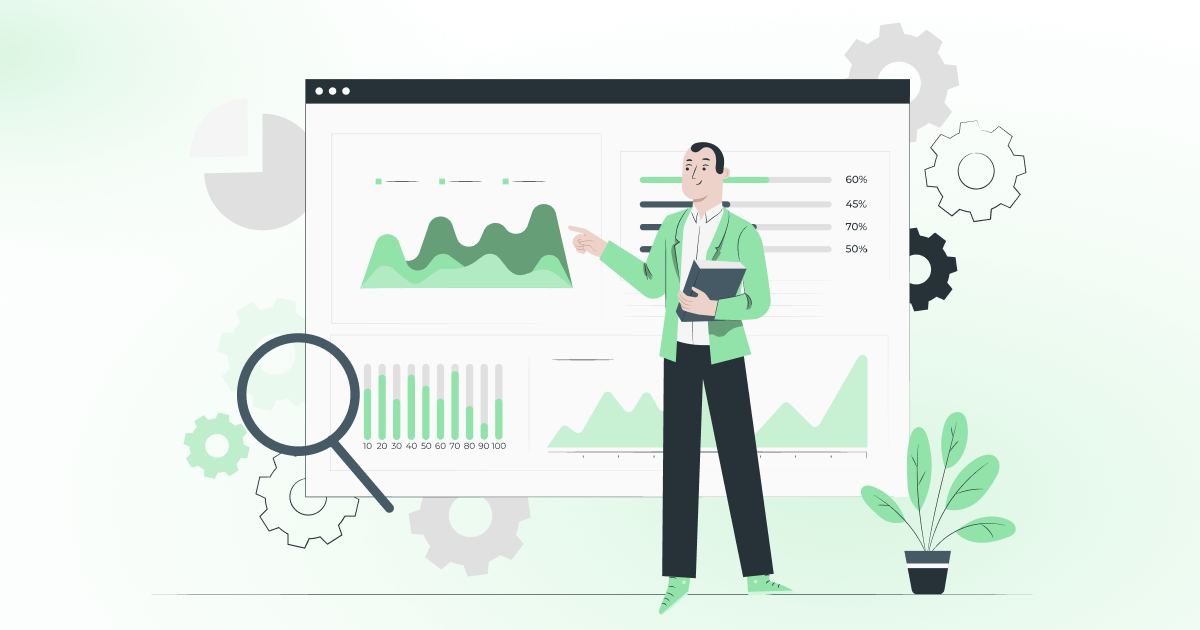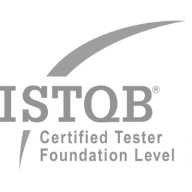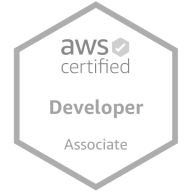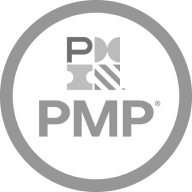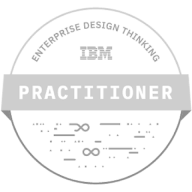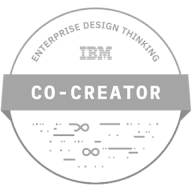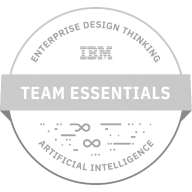
DataOps vs DevOps: Their Role in Software Development
Want to know more? — Subscribe
Software development is pivotal, and the DevOps vs DataOps comparison takes center stage. DataOps stands as a revolutionary approach tailored to the data analytics process. DevOps is a comprehensive collaboration between development and IT operations teams.
Softermii brings over nine years of hands-on experience and offers practical insights into both DataOps and DevOps. This article focuses on these methodologies' workflow, key goals, practices, and processes. It also covers real-world case studies and similarities of DataOps and DevOps. Keep reading to discover what is better: DevOps or DataOps.
The Workflow of DataOps and DevOps
DevOps and DataOps methodologies are vital in a comprehensive tech ecosystem approach. DevOps focuses on the software development lifecycle, and DataOps addresses the data analytics process. Knowing their distinct workflows can help understand what each brings to the software development and data management world.
DevOps Workflow
DevOps is a set of practices and tools that emphasizes collaboration between software developers and IT operations teams. The aim is to shorten the system development life cycle and ensure continuous delivery with high software quality. The typical DevOps workflow includes the following stages:
- Plan. Collaborate on requirements, feature sets, and roadmap.
- Code. Write, review, and merge code into a version control system.
- Build. Convert merged code into executable artifacts.
- Test. Ensure the build artifacts meet quality, functionality, and performance standards.
- Release. Prepare the build for deployment.
- Deploy. Introduce release to a production environment. With advanced DevOps, it can be archived with zero downtime.
- Operate. Oversee application performance in production.
- Monitor. Track the application and provide real-time performance, errors, and user activity feedback. If any issues arise, they're sent back to the planning phase, and the cycle begins again.
DataOps Workflow
DataOps borrows the DevOps philosophies but focuses on the analytics and data lifecycle. It aims to improve the quality and speed of data analytics by emphasizing communication, collaboration, integration, and automation. The DataOps workflow generally encompasses:
- Define. Set clear requirements for analytics.
- Source. Connect to and collect data from databases, streams, APIs, or files.
- Process. Transform, clean, and enrich data.
- Analyze. Run simulations and conduct exploratory analysis and model building.
- Validate. Test model or pipeline accuracy, bias, and performance.
- Deploy. Introduce models or pipelines to production.
- Monitor. Track analytics performance and ensure data quality.
- Feedback Loop. Refine analytics based on insights from monitoring.
DataOps vs DevOps: Overview
Software development and data management have given rise to DevOps and DataOps methodologies. Both prioritize efficiency and collaboration, but each serves a unique purpose and addresses distinct challenges. Let's delve into the definition and core principles of them.
DevOps: Definition and Core Principles
DevOps combines "development" and "operations" to unify software developers and IT operations. DevOps aims to enhance collaboration between these teams and streamline software development and deployment.
Core Principles of DevOps:
- Collaboration. Enhanced teamwork between developers and operations teams, breaking down silos and sharing responsibilities.
- Automation. Automating integration, testing, and deployment to ensure speed and consistency.
- Continuous Integration & Continuous Delivery (CI/CD). Constant integration of code changes, keeping software deploy-ready.
- Feedback Loops. Rapid responses to product and process issues using monitoring tools and practices.
- Infrastructure as Code (IaC). Managing infrastructure through version-controlled scripts.
DataOps: Definition and Core Principles
DataOps focuses on improving the quality and reliability of data analytics. It addresses the full data lifecycle, ensuring data is accessible, reliable, and valuable to end-users.
Core Principles of DataOps:
- Collaboration. Enhanced teamwork among data engineers, data scientists, and business stakeholders.
- Automated Data Pipelines. Streamlining data flow from its source to insights with minimal manual intervention.
- Continuous Data Testing & Monitoring. Ensuring data's ongoing integrity, accuracy, and relevance.
- Agile Data Governance. Flexible data governance ensures data is compliant and secure.
- Feedback Loops. Adapting to user feedback for improved data products.
DataOps vs DevOps: Key Goals
DataOps and DevOps, though interrelated, have distinct objectives tailored to their domains. Here's a deep dive into the key goals of both DataOps and DevOps in the context of software development:
DevOps Key Goals:
- Accelerate Software Delivery. Streamline the release of new features and updates.
- Improve Collaboration. Bridge the gap between developers and operations teams and foster communication, collaboration, and shared responsibility.
- Enhance Software Quality. Reduce bugs with continuous testing and feedback.
- Optimize Infrastructure. Make infrastructure management more predictable using IaC.
- Boost Resilience and Reliability. Ensure software reliability with minimal downtimes through continuous monitoring and automated rollback.
- Promote Continuous Improvement. Adapt and evolve, learning from failures and iterating for better results.
DataOps Key Goals:
- Enhance Data Quality. Ensure data is consistent and trustworthy for analytics.
- Streamline Data Processes. Automate data ingestion, processing, and analysis.
- Foster Collaboration Among Data Teams. Connect data engineers, scientists, and business analysts for a unified approach to challenges.
- Agile Data Governance. Balance flexibility with compliance to ensure secure data usage.
- Rapid Data Delivery. Speed up the delivery of data insights to stakeholders.
- Continuous Monitoring & Feedback. Monitors data flows, pipelines, and analytics to ensure optimal outcomes.
DataOps vs DevOps: Processes and Practices
DataOps and DevOps, each with domain-specific challenges, employ different processes and tools. Let's start comparing DataOps and DevOps methodologies and toolkits.
DevOps Processes and Practices:
- Version Control. Git and Bitbucket tools allow tracking and managing code changes collaboratively.
- Continuous Integration. Jenkins and Travis CI platforms automate the process of integrating code changes.
- Deployment/Delivery. Spinnaker or Jenkins tools handle automatic code deployments.
- Configuration Management. Ansible, Chef, and Puppet automate server setup, configuration, and management.
- Containerization & Orchestration. Docker provides container solutions; Kubernetes offers orchestration capabilities to scale and manage containerized applications.
- Monitoring & Logging. Prometheus, Grafana, and ELK Stack offer application performance insights.
DataOps Processes and Practices:
- Data Version Control. DVC tracks and manages data and model changes.
- Data Integration & ETL. Apache NiFi, Talend, and Informatica PowerCenter handle the extraction, transformation, and loading of diverse data.
- Data Pipeline Automation. Apache Airflow and Prefect create, schedule, and monitor complex data workflows.
- Data Testing. dbt and Great Expectations enable the testing of data for accuracy and consistency.
- Data Collaboration & Cataloging. Alation or Collibra platforms help in data discovery, cataloging, and collaboration.
- Monitoring & Observability for Data. DataDog and Grafana monitor data processes for reliability and performance.
DataOps and DevOps in Action: Real-World Scenarios
The theoretical ideas of DataOps and DevOps are clear, but real-life examples show how they make an impact. Let's examine how both methodologies have been used in software projects.
DevOps Case Study: Etsy and Monitoring
Etsy uses extensive monitoring and real-time feedback to enhance code quality. Tools like StatsD and Graphite help monitor application performance, address issues, and enhance user experience. Etsy's commitment to continuous improvement is a testament to DevOps principles.
DataOps Case Study: LinkedIn and Data Integration
LinkedIn faced challenges in streamlining massive data from various sources. With Apache Kafka, LinkedIn created a real-time, fault-tolerant, and scalable data integration system. This DataOps standpoint helped to provide timely insights to its users, enhancing the platform's value.
DataOps and DevOps Case Study: Uber and the Evolution of Geospatial Analysis
Uber uses geospatial data to optimize routes, fares, and driver allocation. As the company scaled, managing this data became complex. DevOps streamlined their software delivery, ensuring that geospatial algorithms and features were consistently updated. Through DataOps practices, they automated the flow of real-time geospatial data, ensuring its accuracy and reliability. Fare estimation and optimal route calculation features became more precise and timely.
Collaboration and Synergy: DataOps and DevOps Working Together
The integration of DataOps and DevOps can revolutionize operational efficiency. Organizations can harness a more holistic approach to their development processes with both methodologies. Let's explore the synergy when DataOps and DevOps collaborate.
Unified Pipeline Management
Integrating DataOps with DevOps for business can synchronize code changes and data transformations. This synchronization allows to reduce complexities and streamline deployments.
Enhanced Feedback Loop
DevOps focuses on continuous feedback for software deployment, and DataOps methodology ensures data quality and accuracy. A combined focus ensures real-time insights across software and data. It also allows for swift adjustments to both application and data issues.
Shared Tooling and Practices
Tools like Docker or Kubernetes from DevOps can be utilized in DataOps workflows. Data monitoring tools from DataOps can also be incorporated into DevOps for in-depth application health insights.
Collaborative Culture
Both methodologies emphasize cross-team communication. A united approach fosters a holistic environment where all stakeholders, from developers to data scientists, work cohesively. They ensure that software is functional and effectively leverages data for optimal outcomes.
Optimized Performance Tuning
Performance bottlenecks for applications relying on data processing can arise from the software and data workflows. A DataOps-DevOps approach ensures that both of them are optimized for peak performance.
DataOps vs DevOps: Similarities
DataOps and DevOps appear distinct but share basic principles that make them work well together. If we look closely, they both come from the need for rapid, efficient, and quality-driven development cycles.
Emphasis on Collaboration
DevOps emerged to bridge the traditional divide between development and operations teams. DataOps fosters cohesion among data engineers, data scientists, and business analysts.
Continuous Improvement
DevOps champions an iterative approach through CI/CD practices. They allow for swift feedback integration and frequent code releases. DataOps engineer pushes for iterative data processing, ensuring ongoing data quality and analytics refinement.
Automation
DevOps emphasizes automated testing and IaC, and DataOps streamlines data pipelines and promotes automated data analytics.
Embracing Modern Tools
Both methodologies have identified and embraced tools tailored to their needs. DevOps leans on tools like Docker, Kubernetes, and Jenkins. DataOps uses platforms like Apache Airflow, DVC, and dbt to optimize data management.
Focus on Quality and Reliability
DevOps places importance on software reliability and uptime. DataOps ensures data-driven decisions hinge on consistent, accurate, and reliable data.
End-to-End Ownership
Ownership and accountability are central to both practices. In DevOps, teams own their code from inception to deployment. In DataOps, everyone is responsible for data, from its origin to the delivery of insights.
Challenges and Considerations
Adopting DataOps and DevOps revolutionizes software and data management workflows with enhanced speed, agility, and efficiency. Yet, transitioning to these methodologies has some challenges. Recognizing these hindrances is important to integrate them into any organization.
Cultural Resistance
Introducing DevOps means moving away from traditional software development team structure and practices. It can be uncomfortable as teams grapple with new roles, tools, and responsibilities. DataOps has a similar challenge, especially when data roles are entrenched and siloed.
Skill Gaps
DevOps brings new tools and practices that require upskilling for some professionals. DataOps also has modern data tools and collaborative workflows that may require training or hiring experts.
Complex Toolchains
DevOps uses tools like Jenkins, Docker, and Kubernetes that can introduce integration and maintenance challenges. DataOps navigates through platforms like Apache Kafka, DVC, and dbt. They can present similar complexities, demanding strategic tool selection and integration.
Data Security and Compliance
With DevOps, there's a need to keep continuous deployment and infrastructure automation secure. Meanwhile, the data workflows in DataOps may sidestep critical security, privacy, and compliance protocols.
Resource Constraints
Organizations may need to invest in new infrastructure, tools, or teams with DevOps. The requirements of DataOps could also call for budget adjustments.
Inconsistent Metrics and KPIs
It's hard to establish a unified system to gauge the effectiveness of DevOps. For DataOps, it's important to identify clear KPIs for success measurement. With them, it's easier to see if it's worth the investment or needs improvements.
Which One is Better: DataOps or DevOps?
The debate around the efficacy of DevOps vs DataOps in software development continues. But usually, there's no clear winner. It's better to consider what you're building and what you want to achieve, as the appropriate choice often depends on the project.
Nature of the Project
For large-scale data processing, analytics, or machine learning projects, DataOps is the go-to. It aims to optimize data pipelines and bring together diverse data roles. Projects centered around software application development, infrastructure management, and deployment lean into DevOps. It melds software development with IT operations.
Speed and Frequency of Deployments
DevOps is great for projects requiring frequent code deployments, using its CI/CD principles. If a project needs swift data processing, iterative data modeling, or real-time analytics, DataOps is a better choice.
Collaboration Needs
DevOps bridges the gap between developers and operations teams for streamlined software delivery. DataOps focuses on enhancing collaboration between various data players, like data engineers, scientists, or analysts, aiming for a smooth data lifecycle.
Tool and Infrastructure Integration
DevOps offers an established set of solutions if a project's success hinges on the seamless integration of diverse software development and deployment tools. For projects reliant on advanced data management tools, DataOps brings to the table a specialized toolkit for data sourcing, processing, and analytics.
Regulatory and Compliance Concerns
DataOps can emphasize data quality, security, and governance when dealing with data compliance. When infrastructure compliance and security are paramount, the principles of DevOps become more relevant.
Softermii as Your DevOps Services and Consulting Partner
A reliable partner is invaluable in software development, where methodologies like DataOps and DevOps can impact project outcomes. Softermii offers unparalleled expertise and experience in DevOps services for over nine years. Our dedicated team offers insights into DevOps integration across various industries and project scopes.
We are committed to staying updated with the latest trends and tools in DevOps. Our partners always benefit from the most advanced and efficient practices available. Our portfolio includes a wide range of projects that showcase exceptional DevOps solutions. Partnering with Softermii offers assurance, expertise, and a proven track record of success. We are dedicated to fostering seamless collaboration between development and operations.
Concluding words
DataOps and DevOps play distinct yet complementary roles in software development. Choosing between DataOps and DevOps depends on your project and its goals. DataOps is ideal for data-heavy tasks like analytics and machine learning, and DevOps suits software application development and deployment. It's crucial to know these differences between DataOps and DevOps for effective implementation.
Ready to start a journey of optimizing your software processes? Partner with Softermii, our experience in both methodologies allows us to offer expert insights and solutions. Contact our team to explore how DataOps and DevOps can enhance your software development.
Frequently Asked Questions
How can organizations transition from traditional development approaches to DataOps or DevOps?
Transitioning to DataOps or DevOps involves several steps:
- Assessment. Examine the current development and operational processes to understand the areas for improvement.
- Cultural Shift. Encourage a culture of collaboration and open communication, shared responsibilities, and continuous learning.
- Continuous Integration and Delivery. Adopt CI/CD principles, emphasizing automation in the development, testing, and deployment.
- Training. Educate teams through workshops, courses, and hands-on training sessions.
- Iterative Approach. Implement DataOps or DevOps practices in pilot projects, learn from them, and scale up.
Are there any specific tools or technologies recommended for implementing DataOps or DevOps?
Yes, several tools and technologies cater specifically to DataOps and DevOps:
For DevOps, use the following tools:
- Jenkins for continuous integration;
- Docker for containerization;
- Kubernetes for container orchestration;
- Ansible for configuration management.
For DataOps, use the following platforms:
- Apache Kafka for data streaming;
- DVC for data version control;
- dbt for data transformation.
Remember to choose tools that align with an organization's specific needs and infrastructure.
What expertise or skills are required to implement DataOps or DevOps effectively?
Successful implementation of DataOps or DevOps requires a blend of technical and soft skills:
Technical Skills:
- familiarity with the chosen tools and platforms;
- understanding of automation principles;
- knowledge in infrastructure management;
- proficiency in coding/scripting.
Soft Skills:
- effective communication;
- adaptability to change;
- a collaborative mindset;
- problem-solving capabilities.
Specialized training in DataOps or DevOps can be beneficial for teams making the transition.
How about to rate this article?
43 ratings • Avg 4.5 / 5
Written by:










